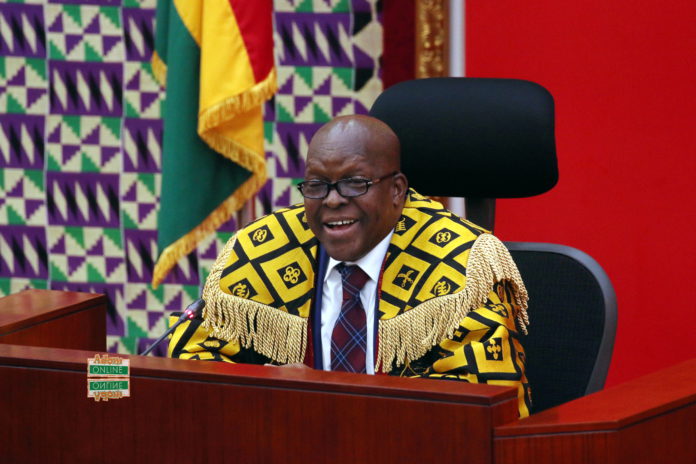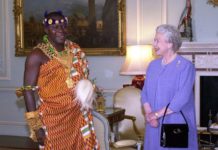
The Speaker of Parliament, Alban Sumana Kingsford Bagbin, has eulogised the late Queen Elizabeth II of the United Kingdom (UK) for using her seven-decade reign to foster greater unification among people of all classes globally.
He said the monarch purposively blurred the lines of ideological, class and racial distinctions at the various places she visited during her reign.
“She will be forever remembered for that gentle but influential hand that rocked the cradle, effortlessly binding and keeping the Commonwealth — and indeed, the world — together with her celebrated soft power,” he said.
Condolence
Signing a book of condolence opened in memory of the late Queen Elizabeth at the residence of the British High Commissioner to Ghana last Tuesday, Mr Bagbin said: “The Queen lived up to her pledge in South Africa in 1949 as a visiting princess where she said, ‘I declare before you all, that my whole life, whether it be long or short, shall be devoted to your service and the service of our great […] family to which we all belong.”
“The most unifying of such moves was the global attention-grabbing and inspirational steps as first British monarch to obliterate the colour-line by dancing with a black man at a public event,” he said.
He also used the moment to send a message of condolence to King Charles III, the Royal Family of the UK, the 14 realms and the Commonwealth of Nations on the transition of Queen Elizabeth II.
Exceptional bond
The Speaker said after blazing the trail as her first colony south of the Sahara to attain independence, Ghana again chalked up that significant first when the country’s first President, Dr Kwame Nkrumah, did the foxtrot with the Queen at a state banquet in Accra, during her visit in 1961.
He said those firsts and many other shared historical encounters forged an exceptional bond between Ghana and the UK during the long reign of Queen Elizabeth II.
He, therefore, described the glorious home call of Her Majesty at the ripe age of 96 years as a moment that marked the end of an eventful chapter of human history.
“It was a seven-decade-long era of calm but courageous and impactful influence on global affairs that spanned the difficult post-World War II years, the rise of new nations in Africa and Asia, the birth of the Commonwealth, the onset of the Cold War and its thawing into a new global geopolitical dispensation, which, in the last years of her reign, was unsettled by threats hitherto unforeseen,” he said.






